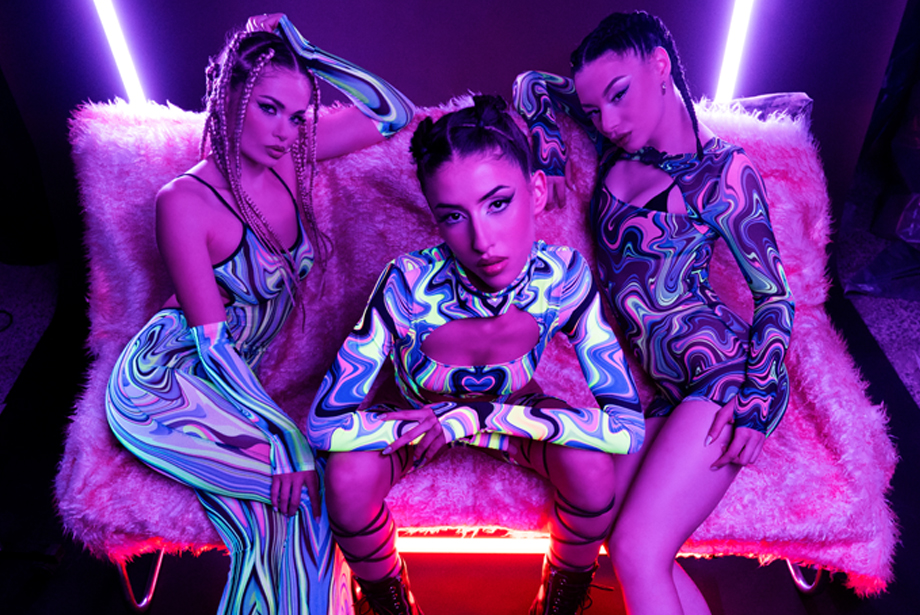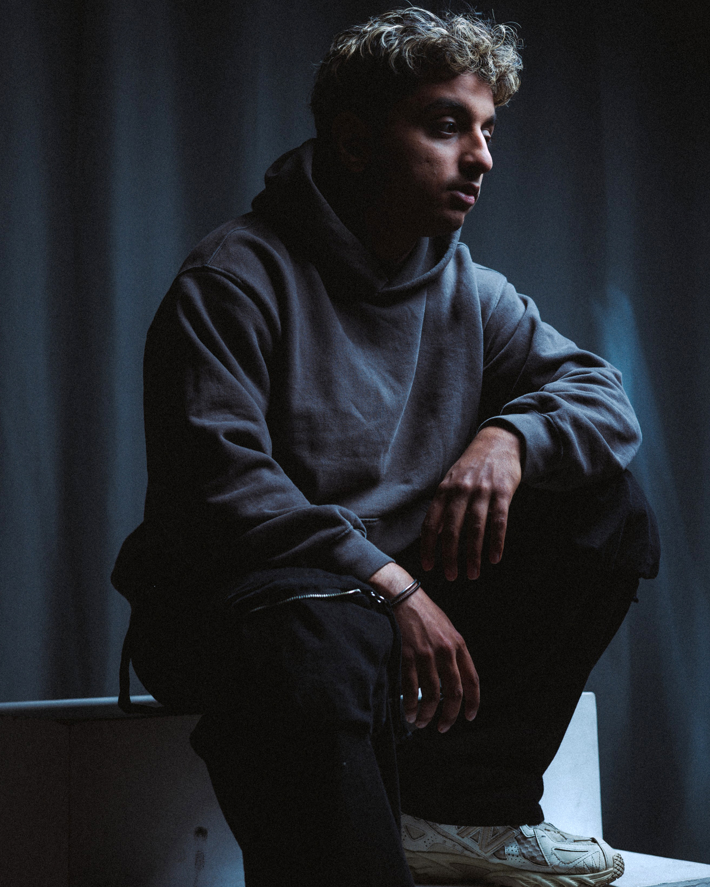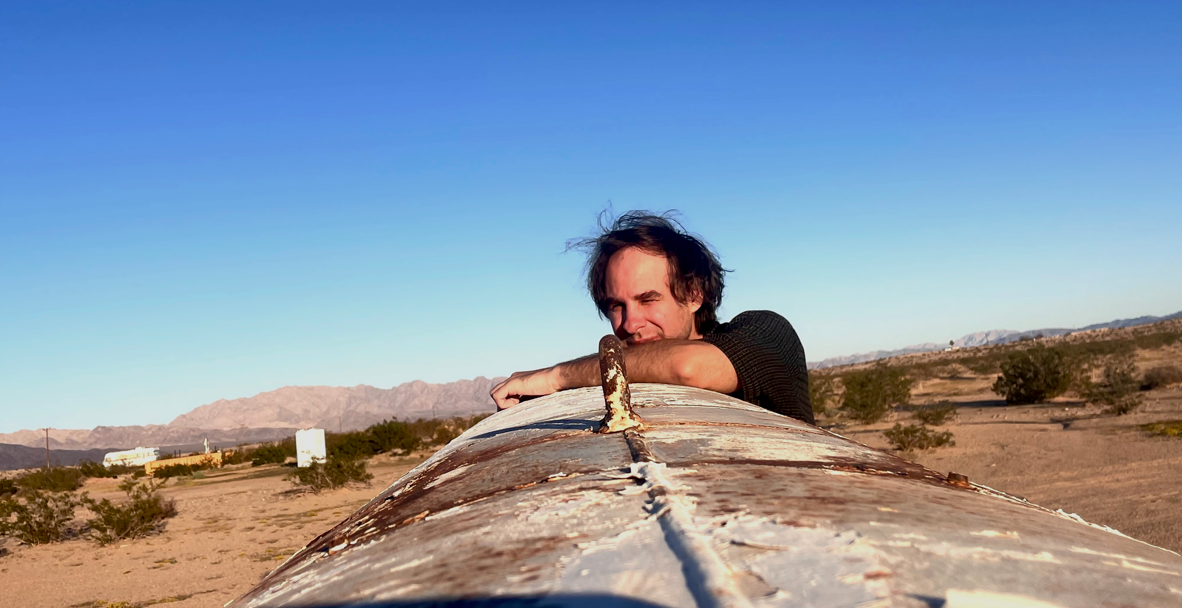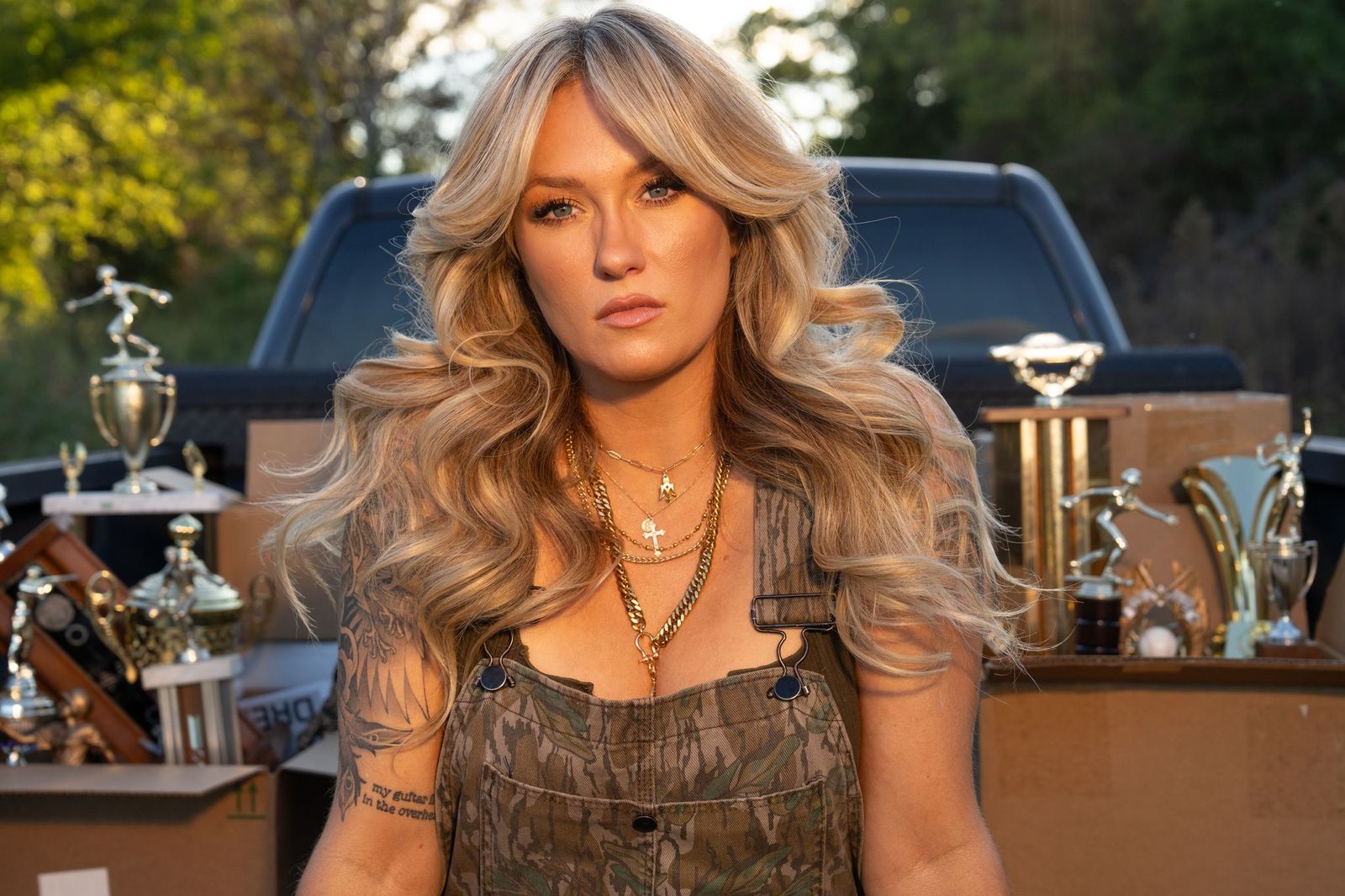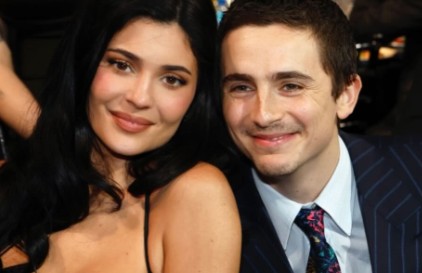
WCW
On March 26, 2001, World Championship Wrestling went out of business.
The Atlanta-based promotion, acquired by media mogul Ted Turner from the Crockett family in 1988, reignited mainstream America’s interest in professional wrestling throughout the ’90s. WCW gained its popularity by signing former high-profile WWE talents like Hulk Hogan and Macho Man Randy Savage. But it became the leader in professional wrestling with the creation of its Monday night WWE alternative WCW Monday Nitro, which aired at the same time as WWE’s Monday Night Raw.
For 84 consecutive weeks, WCW’s weekly television ratings beat those of the WWE. They introduced an edgier brand of sports entertainment, while Vince McMahon and his company relied on outlandish gimmicks that catered to children more than adults. Stars like Ric Flair, Sting, Goldberg, and the NWO propelled World Championship Wrestling and professional wrestling as a whole to unimaginable heights.
Eventually, WCW became its own worst enemy. Their level of success resulted in creative and financial mismanagement. The power struggles between executives and talent combined with WWE’s introduction of its Attitude Era led to WCW’s demise. Vince McMahon purchased WCW after it collapsed, making him the undisputed winner of The Monday Night Wars.
Had World Championship Wrestling not become complacent and had it been correctly managed, it could’ve been in direct competition with WWE to this day. On the 20th anniversary of its grand closing, let’s examine why WCW folded.
Lack of Leadership
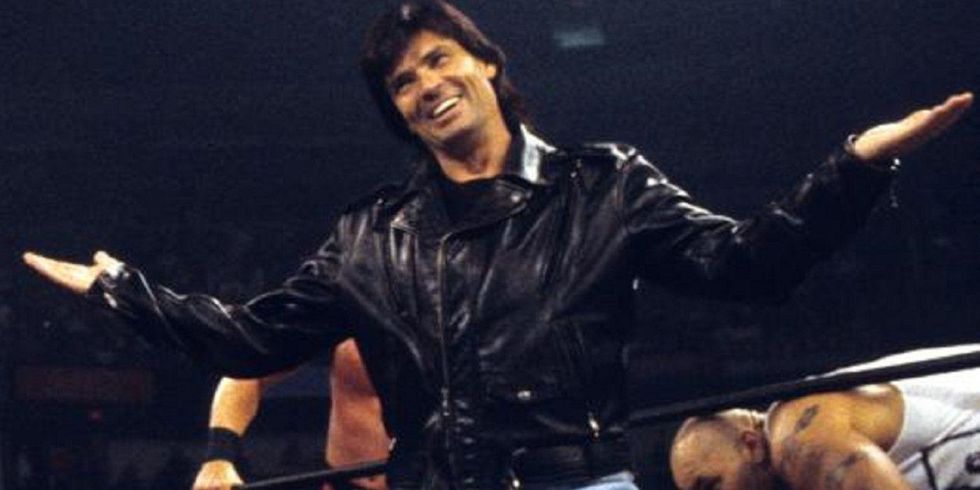
Unlike Vince McMahon, Ted Turner didn’t micromanage his wrestling company. For McMahon, WWE was a family business. But Turner’s purchase of WCW was simply an acquisition of a company with tremendous earning potential. Instead, former announcer turned executive producer Eric Bischoff ran WCW and made it more successful than it had ever been.
His focus on the company started to slip once he became involved with the NWO as one of its leaders. Many of the wrestlers felt Bischoff’s on-screen affiliation with the Hulk Hogan-led collective affected his ability to run the company.
His favoritism towards particular wrestlers and fixation with crushing WWE resulted in poor decisions that might not have happened if Bischoff had been more of a pragmatic boss and less of an egotistical showman.
An Overcrowded Roster
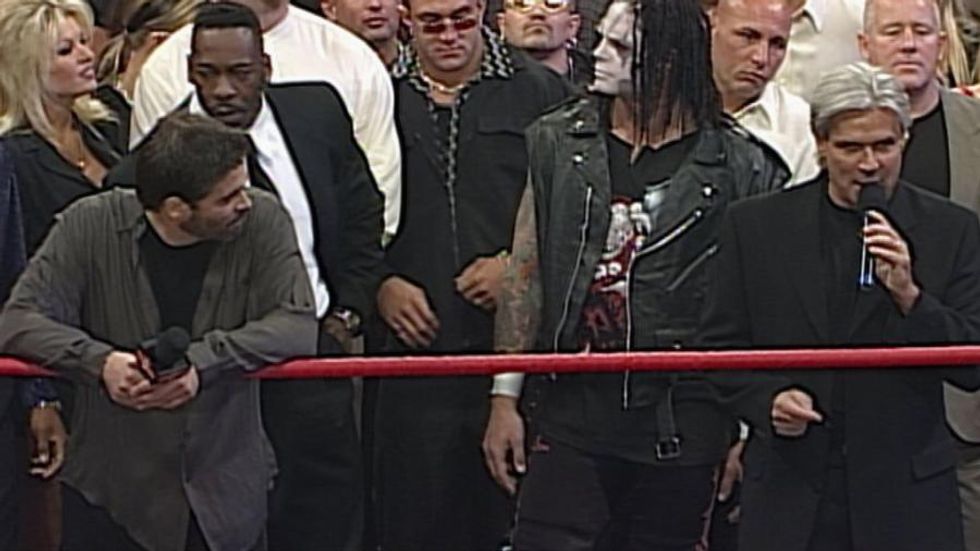
The NWO’s cool factor pushed them to the forefront of WCW programming. The idea of a radical entity laying siege to Ted Turner’s company enticed wrestling fans who were looking for a more realistic and mature product, and audiences watched as Hogan, Hall, Nash, and their comrades did battle with the good guys of WCW who were looking to thwart their attempt at a hostile takeover.
But because it dominated the main event scene, the NWO took opportunities for more television time and higher placement on the card from hungry young talent and veterans who still had much to offer. WCW’s failure to utilize its talent created a toxic work environment and forced wrestlers to apply their trade elsewhere, mainly in WWE.
Stunt Casting
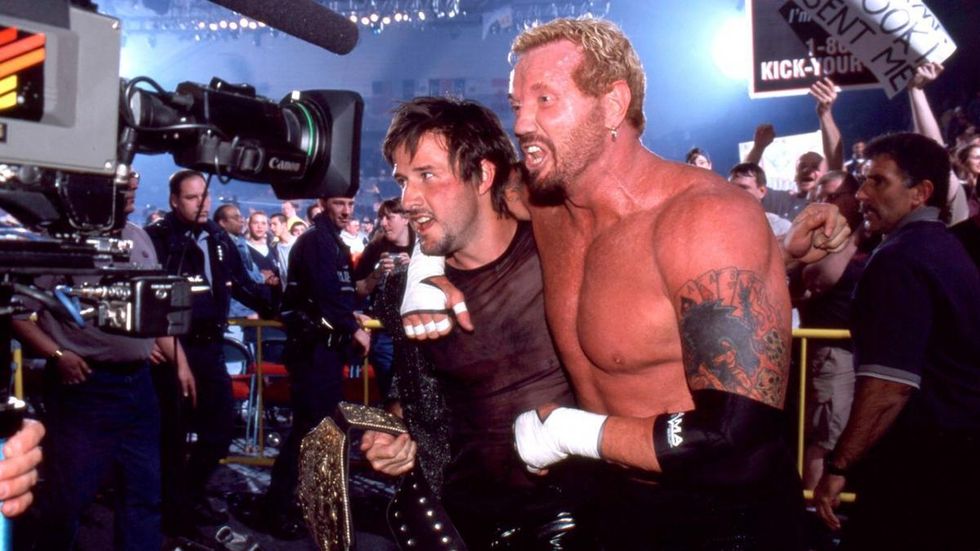
WCW’s reliance on stars from other mediums of entertainment helped garner viewership from casual fans and people who were completely unfamiliar with pro wrestling. Stars like Dennis Rodman and Karl Malone added legitimacy to the promotion by stepping in between the ropes and teaching the world to see wrestlers as athletes and entertainers on their level.
Unfortunately, WCW’s other celebrity cameos were typically moments that exhibited the company’s lack of sound judgment, especially as it headed towards its final days. They let the rap group Insane Clown Posse have a run as in-ring competitors, made David Arquette their world champion, and for whatever reason gave Hip-Hop mogul Master P a faction of his own. WCW’s erratic stunt casting saw it desperately clinging to any celebrity that could bring them attention, notoriety, and ratings.
Failure to Create New Stars
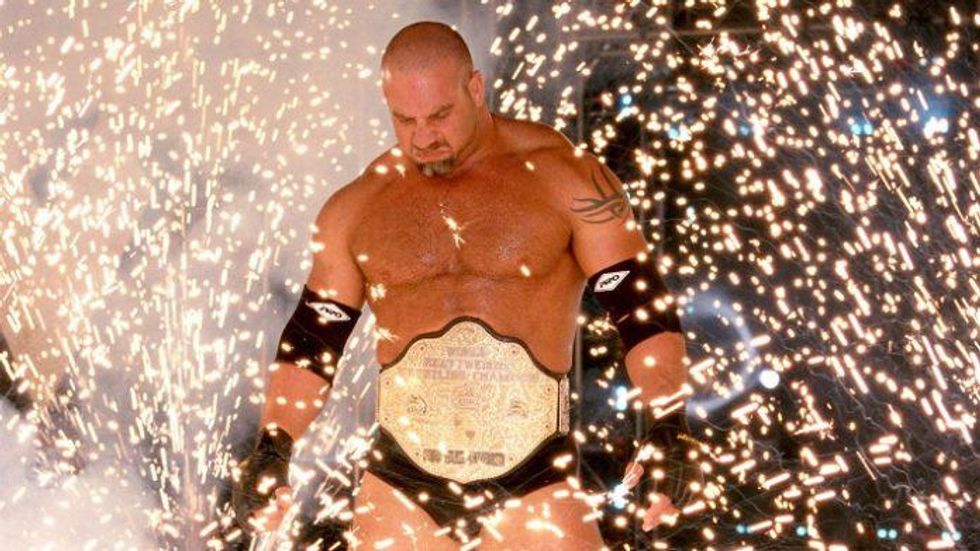
WCW signing Hogan, Hall, Nash, and other WWE luminaries meant that they were now the number one wrestling promotion. Seeing people that Vince McMahon turned into megastars make the move over to WCW gave fans the impression that they offered something WWE couldn’t give its audience or wrestlers. But while WCW relentlessly drained WWE’s talent pool, it failed at developing and nurturing one of its own.
Talents like Ric Flair and Sting had established names in pro wrestling before Ted Turner bought WCW, and the popularity of their NWO hinged on their presentation of being WWE guys sent by Vince to dismantle the company. WCW’s only organic superstar was Goldberg, but bad booking decisions and an injury killed his and the company’s momentum.
Guaranteed Contracts
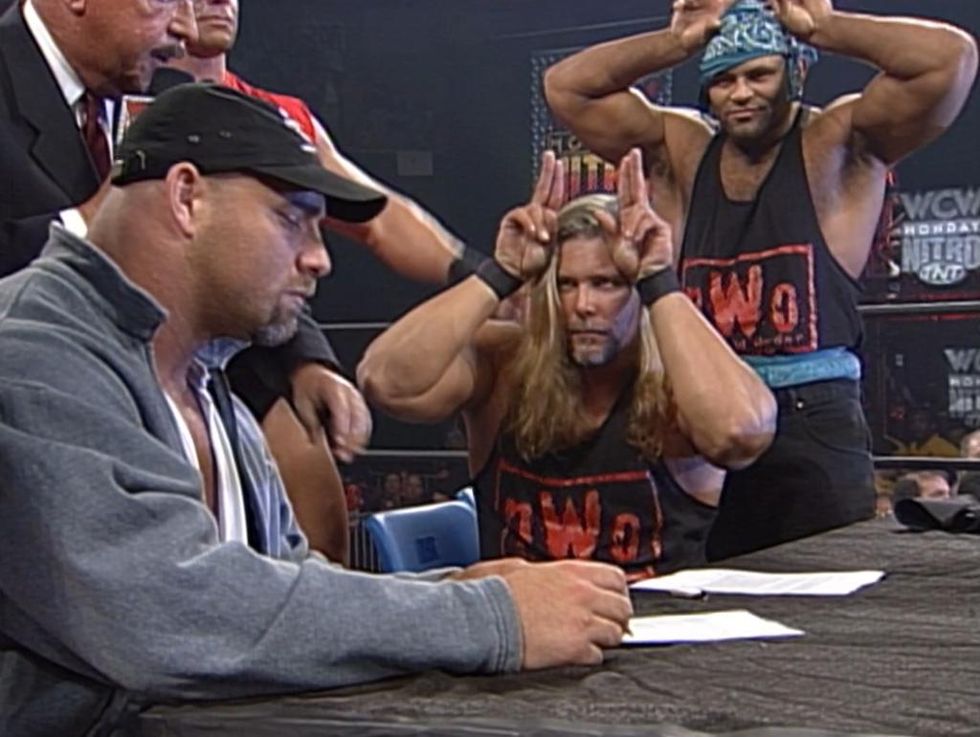
Many of the stars who left WWE for WCW didn’t do so because WCW was the new frontier in pro wrestling but because of the large sums of money guaranteed to them whether they wrestled or not. At the time, WWE wasn’t the billion-dollar corporation it is today. Eric Bischoff exploited McMahon’s inability to give out guaranteed contracts by promising fortunes for WWE performers looking for more money and less work.
Unfortunately, this backfired on WCW as stars like Kevin Nash took advantage of Ted Turner’s checkbook. Nash, Hogan, and Macho Man had creative control clauses in their contracts that allowed them the right to refuse to go along with a suggested storyline and permitted them to show up to work and still be paid. The NWO’s popularity paid dividends for WCW during the WWE showdown, but their ridiculous contracts turned out to be more trouble than they were worth.
Obsession With Ratings
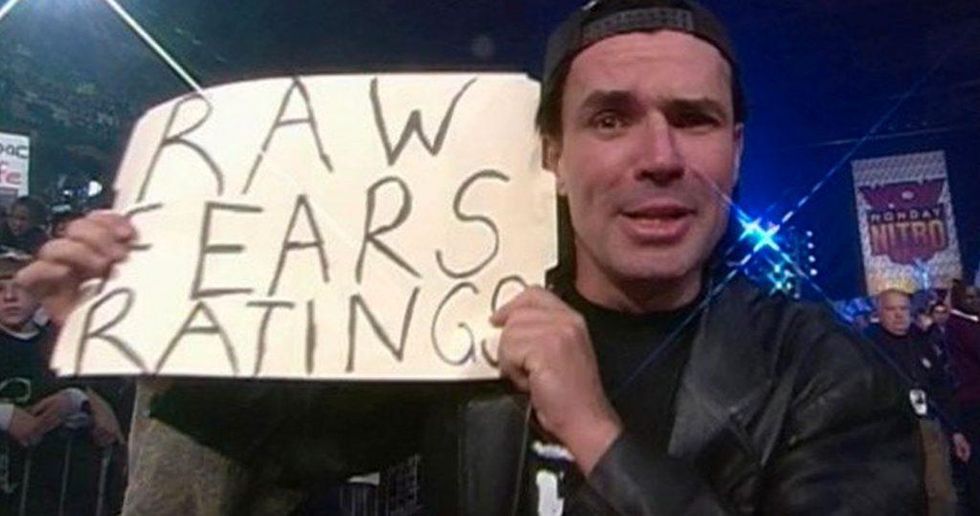
WCW’s weekly thrashing of WWE in the ratings suggested that Vince McMahon was close to waving the white flag. He couldn’t compete with Turner’s bank account or WCW’s innovative presentation. However, Eric Bischoff’s hubris and obsession with putting WWE out of business eventually started to become a liability.
Bischoff’s ratings fetish brought about the end of decisions that would have resulted in big pay-per-view paydays for WCW. His desire to outdo WWE made him give away a greatly anticipated WCW Championship Title match between Hulk Hogan and the red-hot Goldberg for free on an episode of Monday Nitro.
Bischoff also shot himself in the foot by advising announcer Tony Shiovanne to give away the results of the pre-taped WWE title match between The Rock and Mankind, which caused millions of fans to switch to WWE programming.
The NWO
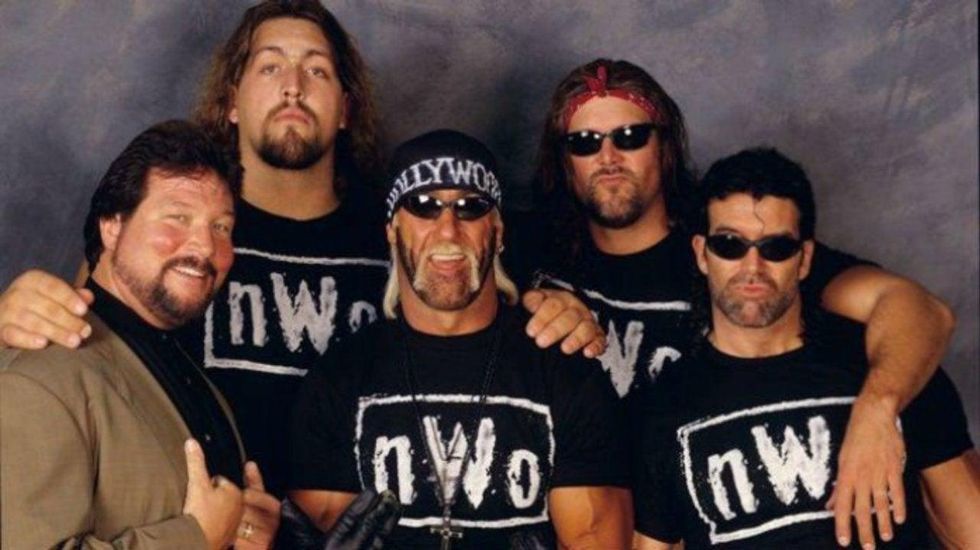
The creation of The New World Order was a gift and a curse for WCW. It was the catalyst to their nearly two years of dominance at the top of the pro wrestling mountain; but in many ways, it was WCW’s poison pill. The NWO’s controversial antics on and off-screen created tension between themselves and the rest of the WCW roster with the company’s obscene promotion of the group.
Besides WCW’s over-exposure of the group in every segment, their recruitment process wasn’t exclusive. It seems anyone looking to join the NWO could get in. The various reiterations and spinoffs, including the rogue NWO Wolfpac lead by Kevin Nash and a group of frustrated Latin wrestlers LWO, Latino World Order, diluted WCW’s most profitable act, eventually reducing it to a shell of its former self.
Vince Russo
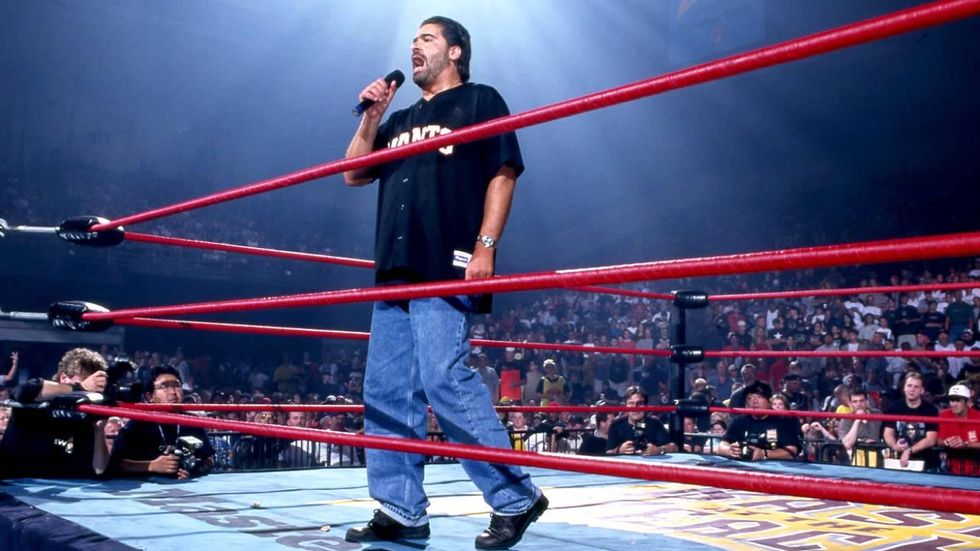
Vince Russo is arguably the most hated man in professional wrestling. He is the main culprit wrestling fans and enthusiasts tend to blame when they mention the dying days of World Championship Wrestling. The former WWE writer’s one-year tenure with the company was its lowest creative point, hitting rock bottom when he took over as the match booker.
Russo’s nonsensical storylines and screwy finishes felt like they’d been taken from a National Lampoon movie (take, for instance, the ghastly Viagra On a Pole match). When he wasn’t writing terrible angles for incredible performers, he was creating chaotic scenes backstage through manipulation and antagonization. Vince Russo’s time at WCW was so tumultuous that many believed Vince McMahon sent him to bring WCW down from the inside.
Vince McMahon
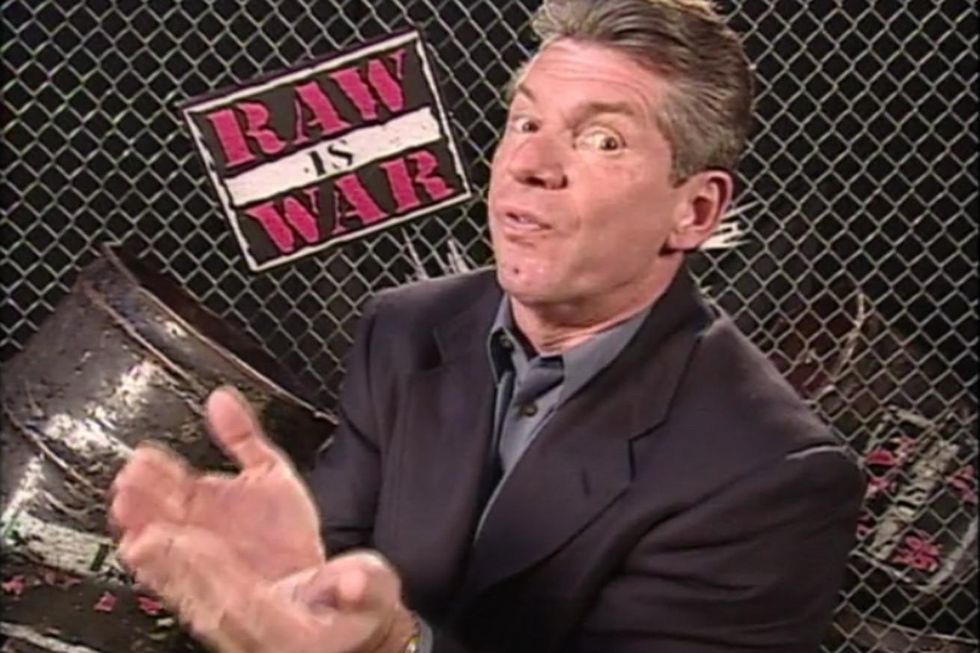
Vince McMahon was in the fight for his life against WCW. With fan interest dwindling and his roster depleted by Turner and Bischoff, it looked like McMahon was down for the count. But the WWE chairman couldn’t sit by and let everything that his father had built be taken away by WCW.
McMahon took a page out of his competitor’s book. He loosened the restrictions on his superstars and allowed them and his programming to be more in tune with the in-your-face shock culture of the ’90s. But unlike WCW, McMahon’s willingness to invest in new talent instead of nostalgic, well-known acts gave birth to the industry’s most iconic stars like Stone Cold Steve Austin, The Rock, and WWE’s rebellious faction, D-Generation-X.
Can you think of more reasons why WCW isn’t around today?
Sound off on Twitter @Popdust using the hashtag #ListedByDeascent and let us know!



